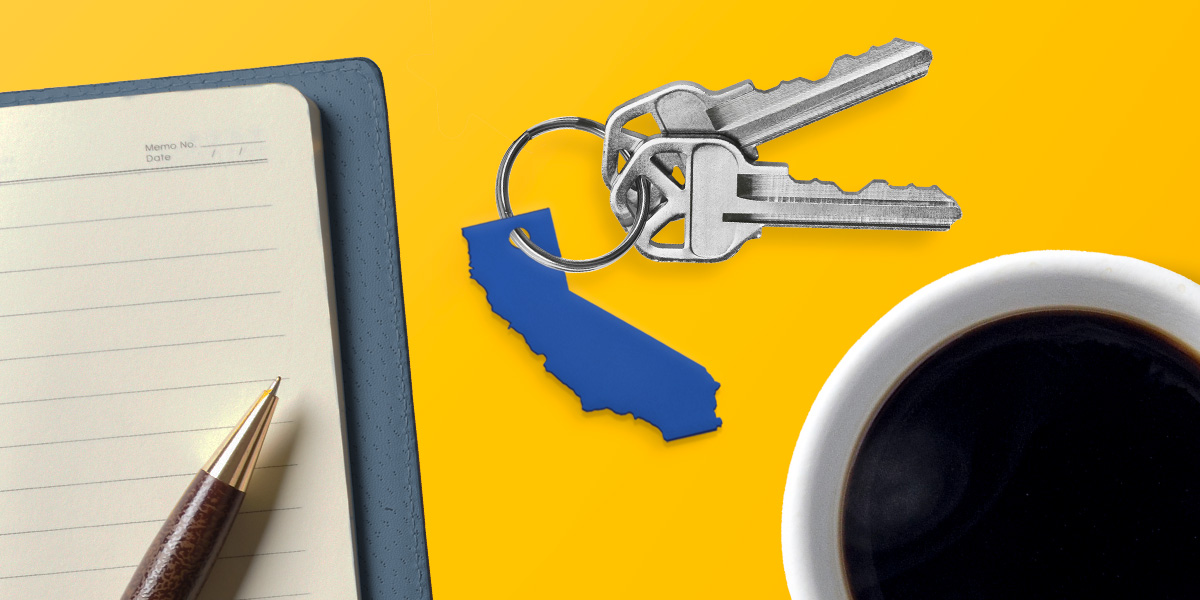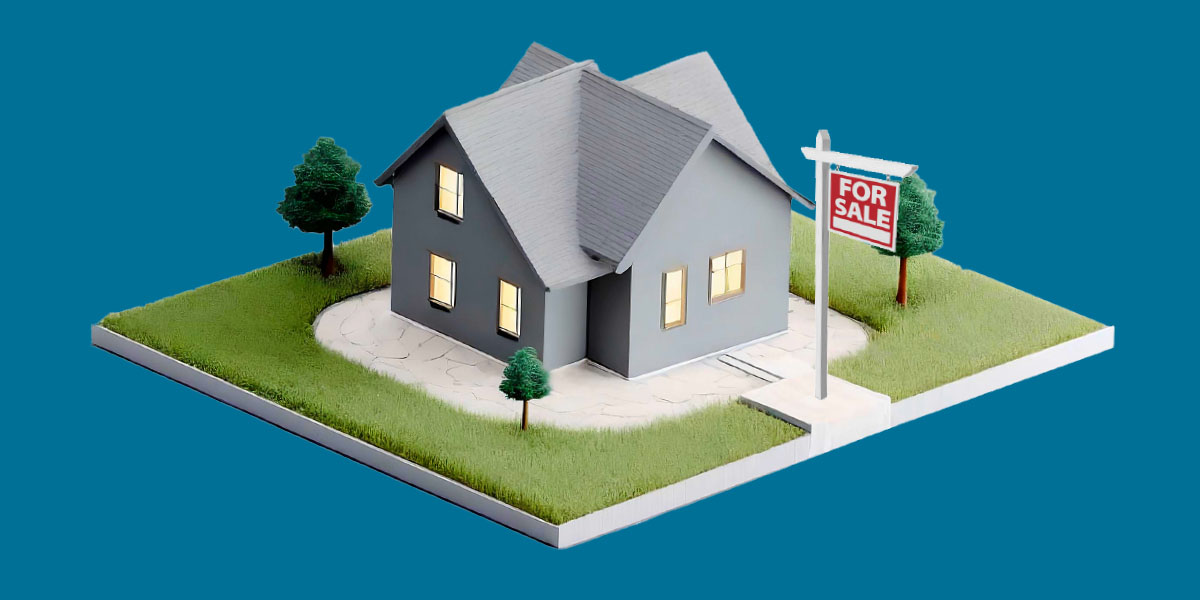-
Personal Banking -
Insights
14 First-Time Homebuyer Mistakes to Avoid
Becoming a homeowner for the first time is a momentous milestone for many people. But the process of buying your first home involves many decisions — some of which can make being a homeowner easier or harder.
Some mistakes may be blips that cause a delay or two, while other first-time homebuyer mistakes can be costly or lead to buyer’s remorse.
Here are some common first-time homebuying mistakes to avoid.
1. Underestimating the Cost of Homeownership
Renters sometimes assume a mortgage payment is equivalent to rent. While both keep a roof over your head, your monthly mortgage payment is more complicated than your monthly rent. In addition, you’ll have other expenses as a homeowner that renters do not.
Mortgage Expenses to Consider
Your monthly mortgage payment includes the principal and interest on your loan. Your principal is the amount you owe on your home while interest is the amount you pay to your loan provider.
But that's not the only cost factored into your mortgage amount.
Often, lenders also require you to pay your homeowner’s insurance premium and your property taxes with your mortgage payment into an escrow account. Depending on your loan terms, you may also be required to pay mortgage insurance.
The Costs of Owning a Home
Outside of your mortgage payments, you may be required to pay homeowner association dues, depending on where you buy. If you are moving into a larger space, you’ll also need to budget for potentially higher utility bills, including water, electricity, gas and trash collection.
Homeowners should also budget for maintenance, repairs and landscaping. How much you’ll need varies widely, but many financial experts recommend setting aside 1% to 2% of your home's total value annually for repairs.
First-time homebuyers need to make sure they are aware of these ongoing costs, along with the upfront money needed for a down payment and closing costs. Some people decide to wait to buy a home until they’re more certain of their job security and where they want to live, in addition to shoring up their financial stability.
2. Not Getting Pre-Approved for a Loan
Some first-time homebuyers start looking at homes before they consult a lender. Without a loan preapproval, it's difficult to know what price range they can afford. Unfortunately, it’s easy to fall in love with a house and then be heartbroken when you realize you can’t afford it.
A loan preapproval, which is largely based on your credit history, debt, income and assets, provides an opportunity to understand the cost of homeownership and to prepare yourself financially for buying a home. Your lender can also help estimate your cash needs and review your credit.
However, don't assume that you can always afford the maximum loan amount for which you're approved. Be certain to carefully examine your financial situation to fully understand what price range is practical for you, regardless of your pre-approval amount.
A preapproval is also important because home sellers might not consider an offer without a mortgage preapproval from a lender, unless the offer is in cash.
3. Working With the Wrong Realtor
Choosing a buyer’s agent to represent your interests is an essential step for most homebuyers. Your agent can help you find properties, identify the value in different homes and help you broaden your search to neighborhoods you might not be familiar with.
As a first-time homebuyer, it’s important to choose an agent who will educate and guide you through the process of buying your first home. An ideal agent should be willing to work in your price range, should understand the local market and should be willing to put in the time and effort required to guide you.
You might want to avoid a real estate agent who lacks experience helping first-time buyers or someone who is not local to the area in which you wish to purchase a home.
4. Not Improving Credit Score First and Monitoring It
Before you apply for a mortgage, you should check your credit score. Find out your credit score and take steps to improve it, if needed. The interest rate your lender offers for a conventional loan will likely be partly based on your credit score. Borrowers with the higher credit scores typically pay the lowest mortgage rates, and even a slightly lower interest rate can make a big difference.
Don’t assume that once you’re approved you don’t need to think about your credit. Your lender will recheck your credit before your loan closes, so it’s important not to take out new loans, close any accounts, or be late on payments in the months leading up to your home purchase. Those actions would likely lower your credit score, which in turn could impact your mortgage qualification or rate.
5. Changing Jobs When You'd Like to Purchase
Lenders look for job security as an indication that you have a low risk of defaulting on your loan. To that end, they review pay stubs and W-2s to verify you have stable income. If you change jobs right before you start thinking about buying your first home, it could reduce your chances of a mortgage loan approval or perhaps increase your loan's interest rate, if a job change means you're considered a higher-risk borrower.
6. Not Reviewing Home Grants and Loan Programs
Many homebuyers are unaware of the numerous assistance programs and low down payment loans that are available for first-time homebuyers, or they assume they can’t qualify. Ask your lender about these programs designed to make buying your first home more affordable.
For example, City National Bank’s Ladder Up program offers grants up to $50,000 for qualified buyers in certain specific markets. Additionally, most states and cities have a housing financing agency that offers grants and loans to qualified borrowers.
Speak with your lender about loan programs from the Federal Housing Administration (FHA), the Veterans Affairs Department (VA) and the U.S. Department of Agriculture (USDA) that offer low or no down payment options and other potential benefits for borrowers.
If you have someone who can gift you money for your down payment, talk to your lender about the rules and requirements for receiving funds.
7. Not Looking at the Big Picture
When you start looking at houses, it can be easy to get caught up in the features of a house, such as the pretty garden or modern kitchen, and to not pay enough attention to whether the floor plan will work for you over time.
Your real estate agent can help call out features you can easily fix, such as the paint color, and those that have a lasting impact on a home’s value, such as location and square footage.
Beyond the house itself, you’ll want to consider the neighborhood and whether future development will impact property values negatively or positively. Even if you don’t have kids, you may want to look at the quality of the school district, because that impacts home values as well.
Other neighborhood details that can impact home values include:
- Crime rates
- General condition of nearby homes
- Nearby amenities and businesses
- Public transit
- Local insurance rates
Many listing sites now include information about climate risk, such as vulnerability to floods or wildfires, which should be part of your decision about whether to buy or how much to offer for a property.
8. Moving Too Fast and Making Emotional Decisions
Visualizing yourself in a home can quickly turn into falling in love with it. It’s best to slow down for a moment and try to make a rational decision instead of giving into an emotional response. Make sure the house is truly best for your lifestyle and budget for the long term before making an offer. And, in a competitive housing market, an emotional buy during a bidding war can cause you to overpay for the property.
9. Moving Too Slowly
On the other hand, sometimes first-time homebuyers are so cautious or so fixated on a specific price or interest rate that they lose sight of the long-term nature of homeownership. Also, thinking you’ll find an exactly perfect house if you just keep looking could mean you miss out on a home that might suit you fine, particularly if you make a few cosmetic changes.
While you need to stay on track with your budget, realize that an increase in price of $10,000 might only increase your payments by a few dollars per month, especially if you finance with a 30-year mortgage. A little flexibility can help you move more quickly to make an offer, which can be vital in a competitive market.
10. Skipping a Home Inspection
A home inspection provides you with information about the condition of a home you want to buy as well as insight into future potential repairs and maintenance. That information is particularly valuable for first-time homebuyers who lack experience in taking care of a home. You may be able to negotiate with the sellers to make repairs depending on the inspection results.
If you’re in a competitive market and need to move quickly and make an offer without a home inspection contingency, you may still schedule a “pre-offer” inspection to have a professional do a quick evaluation of the house and alert you to any red flags.
11. Buying Too Much House
One of the most painful first-time homebuyer mistakes is to spend more than they can truly afford on their purchase. If you neglect to include homeowner’s insurance, property taxes, homeowners association dues, utilities and other costs of homeownership, you can find yourself without enough money to meet your other wants and needs.
Be careful to budget, taking into account critical items such as:
- Savings
- Retirement
- Essential expenses, such as utility bills and groceries
- Medical needs
Also don't neglect budgeting for non-essential expenses that might be important to living a fulfilled life. These might include charitable donations, vacations, hobbies or entertainment.
12. Draining your Emergency Fund
While it’s common to spend down some savings when you buy your first home, a big mistake some first-time homebuyers make is to use up every dollar in their emergency fund.
The problem is that when the washing machine breaks down or a utility bill is higher than expected, these homeowners may need to turn to high-interest-rate credit card debt to pay for these surprise bills. Financial experts suggest that you keep at least three to six months of expenses available for an emergency.
13. Assuming a 20% Down Payment is Needed
A big misconception among first-time homebuyers is that a down payment of 20% is mandatory, so they delay buying a home until they can save more money. The median down payment for first-time buyers in 2024 was 9%, according to the National Association of Realtors. For all buyers, including repeat buyers, the median was 18%.
Loans are sometimes available with as little as a 3% or 3.5% down payment required. VA loans require zero down payment. In addition, numerous grant programs can provide first-time buyers with down payment assistance.
14. Not Budgeting for Closing Costs and Other Expenses
While first-time homebuyers focus on accumulating funds for a down payment, they sometimes forget that they also need to pay closing costs and moving expenses when they purchase a home. According to experts, closing costs can range from 3% to 6% of a home's total cost.
Learning about budgeting for homeownership can help you make decisions that make the experience a positive one. To learn more about buying your first home, visit our homebuying resource center.
This article is for general information and education only. It is provided as a courtesy to the clients and friends of City National Bank (City National). City National does not warrant that it is accurate or complete. Opinions expressed and estimates or projections given are those of the authors or persons quoted as of the date of the article with no obligation to update or notify of inaccuracy or change. This article may not be reproduced, distributed or further published by any person without the written consent of City National. Please cite source when quoting.
Loans and lines of credit are subject to credit and property approval. Additional terms and conditions apply. Not all applicants will qualify. Home equity lines of credit are not available in Texas.





